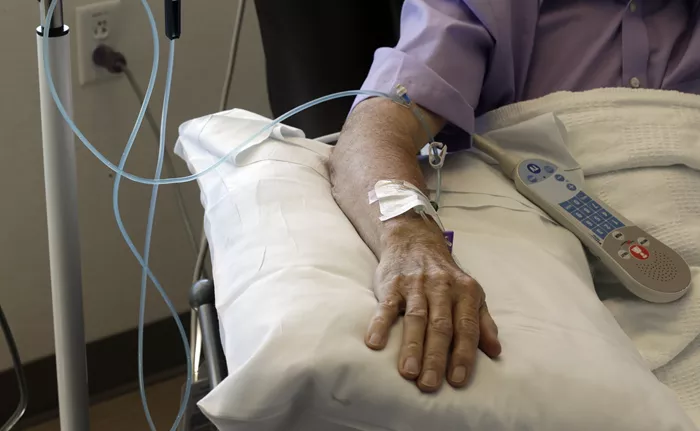How Many Children Have Lost Their Parents to Cancer?
This haunting question will be at the center of discussions at the upcoming World Cancer Congress, held in Geneva from September 17-19. Researchers from the International Agency for Research on Cancer (IARC) in France will present findings on the number of children orphaned by the death of their fathers due to cancer. This follows a 2022 report that revealed over a million children lose their mothers to cancer each year, trapping many in a cycle of socioeconomic disadvantage.
The congress, organized by the Union for International Cancer Control (UICC), will gather around 2,000 participants from nearly 100 countries, including prominent figures such as Malaysian Health Minister HE Datuk Seri Dr. Dzulkefly bin Ahmad and Geneva State Counsellor Pierre Maudet. This year’s event will focus on themes like cancer prevention, screening, healthcare systems, treatment, and tobacco control.
Key Discussions and Advances
Cary Adams, UICC’s CEO, expressed excitement about the plenary sessions, which will cover pressing issues like global advocacy for non-communicable diseases, gender disparities in cancer care, and the real-world application of technologies like artificial intelligence in cancer treatment. “The plenaries are always the highlight because they bring the whole congress together to discuss issues crucial to the global cancer community,” Adams said.
In Sierra Leone, for instance, efforts to combat cervical cancer through HPV vaccinations, such as at St. Augustine School in Dwazark Community, showcase the strides being made in cancer prevention. This is just one example of the many global initiatives that will be highlighted during the event.
Focusing on Equity in Cancer Care
Equity in cancer treatment will be a central theme this year, as noted by UICC’s communications manager, Eric Grant. The congress will examine how to ensure equal access to care across different genders and regions. A groundbreaking study on the socioeconomic burden of ovarian cancer across 11 countries will be presented, highlighting stark disparities in cancer care across different income groups.
Another vital session will address cancer treatment during humanitarian crises, drawing lessons from Sudan, Gaza, and Haiti. These insights emphasize the global and complex nature of cancer care, especially in conflict zones.
Why Geneva Again?
Geneva, home to key global health organizations like the World Health Organization, will host the congress for the second consecutive year. Originally planned as a one-time event in Geneva due to the COVID-19 pandemic, the city has now become a fitting backdrop for these discussions. Adams explained that holding the congress in Geneva allowed participants to interact with international health organizations and benefit from the city’s global health infrastructure. The success of the 2022 event prompted the UICC board to keep the location for another year.
This year’s congress will also shed light on the impact of the COVID-19 pandemic on cancer diagnoses. The IARC will release an analysis of how the pandemic disrupted cancer detection and treatment across several countries.
Commercial Determinants of Health
Several sessions will focus on the role of commercial factors like tobacco and alcohol in cancer rates. Tobacco advertising remains a significant barrier to reducing smoking rates, and a session at the congress will train attendees to expose the tactics used by the tobacco industry. A new study on tobacco advertising on social media in Germany will also be presented, alongside research examining the relationship between alcohol consumption and cancer risk.
AI and Innovation in Cancer Care
The use of artificial intelligence (AI) and other technological advancements in healthcare will be a key topic. These innovations are set to transform cancer diagnostics and treatment, but they also raise concerns about data privacy and equity. The congress will explore both the potential and challenges of integrating AI into cancer care.
Patients at the Heart of the Congress
Patients will have a strong presence at the congress, with about 40% of UICC’s member organizations representing patient groups. Mobilizing their voices is crucial for advancing policies related to cancer treatment and care. “The congress appeals to a wide range of participants, from patient advocates to oncologists, researchers, and policy experts. It’s a unique gathering with the shared goal of improving cancer control globally,” Adams noted.
The World Cancer Congress continues to serve as a vital platform for discussing cancer’s most pressing challenges while fostering collaboration between diverse groups. Through these efforts, experts hope to make strides in prevention, diagnosis, treatment, and patient support—ultimately reducing the global burden of cancer.
Related articles:
Cancer Survivor Warns Of Hidden Risks In Breast Implants
Weill Cornell Medicine Awarded $1.5M Grant to Predict Prostate Cancer Bone Metastasis
Urgent Health Alert: Counterfeit Vodka Found With Toxic Industrial Alcohol, Fsa Warns


